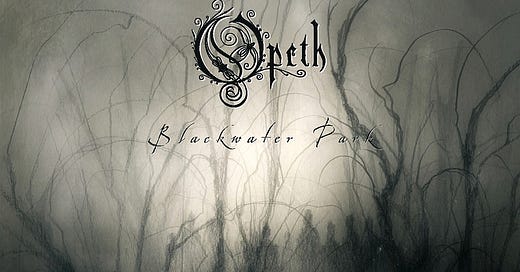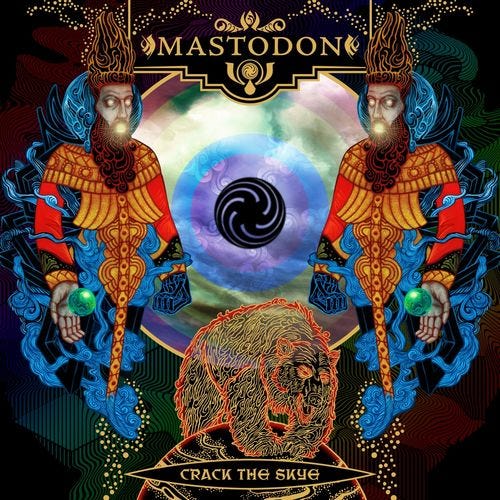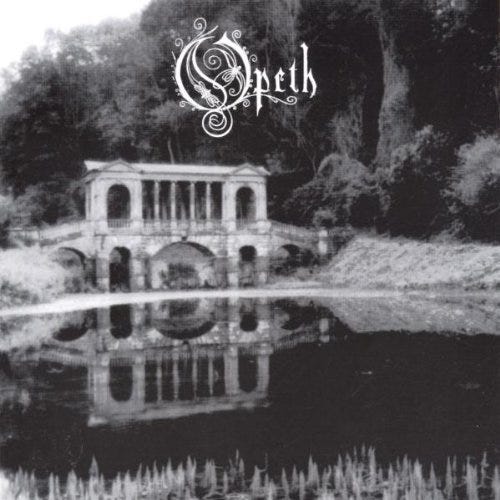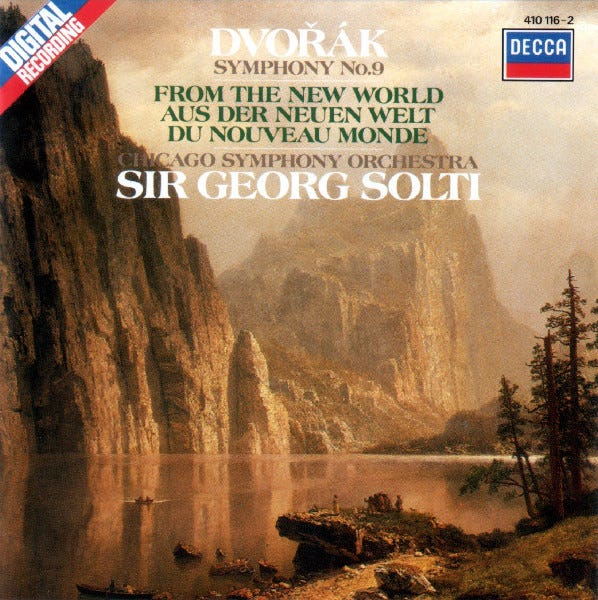Happy Friday!
Because my last two letters were spent celebrating a personal milestone and a perennial milestone respectively, I didn’t have time to comment on the pleasantly surprising news that South By Southwest would no longer be sponsored by the United States Military or weapons manufacturers for future installments of their long running music/movie/tech festival in Austin, Texas. This news came months after a number of bands booked to play at the 2024 iteration of the festival dropped off the bill in protest, specifically citing the on-going war in Gaza as their cause. In the months between those protests and SXSW’s capitulation, musicians and activists in England scored a similar victory by forcing Barclays to back out of all Live Nation festivals in the UK.
These wins were on the back burner of my mind on Saturday, June 29th while I traveled back and forth across Brooklyn to attend and perform at two shows organized by musicians. First, my Laughing Stock bandmate Mimo drove me and my drum kit up to an undisclosed location in Bed-Stuy where Laughing Stock were throwing a backyard BBQ. I set up my drums and enjoyed a delicious mango smoothie and beef patty. Then I hoofed it to Ridgewood for the Temporary State Day 12-hour show. I was booked to play drums with Told Slant at 4pm, but arrived early to scope the scene. Temporary State University is a new project from the Gunk team and Jordan Michael of Showpaper. The aim is to teach people how to put on shows of their own. To that end this 12-hour show was an exaggerated example of what you, potential show-booker, could pull off if you set your mind to it.
After playing with Told Slant and I briefly chopped it up with Frank “Friend of Music” Meadows and Greta “Frankie ‘Franz Charcoal’ Cosmos” Kline. Then I went back to Bed-Stuy. The Laughing Stock BBQ was up and running. The grill was stocked, cheap beers flowed freely, and cool people in hats and sunglasses watched A Sword play complicated meters under a makeshift tarp. Burgers and dogs were available for a low price. All proceeds went toward relief in Palestine. Hours later Laughing Stock played. 35 minutes later I was covered in sweat but felt pretty great. When night fell, Mimo and I drove back to Gowanus with my drums.
Both of these shows were by definition DIY rock concerts. Despite this on-paper similarity the two were focused on subtly different kinds of DIY rock music. Temporary State rented out an event space that looked like it usually hosted birthdays and graduation parties. The Laughing Stock show took place somewhere not leased for commercial use. Right before Laughing Stock went on I found myself in a conversation with the guitarist of Liturgy. Right after Told Slant played at Temporary State I found myself in the same room as Greg Rutkin. Temporary State Day was an Indie show. The Laughing Stock BBQ was a Punk show.
The SXSW boycotts and the Barclays boycotts in England fall along this same division. The bands that led the charge in Austin include my former “boss” Shalom, the homies in Fust and the rest of the Dear Life set. Across the pond, Lamniformes Listening Diary alums Zulu and Ithaca were among the first bands to drop off. I’ve said many times that I’ve always had one foot in each of these worlds, the Indie one and the nebulously heavy one. The success of these protests made me vicariously proud of the two worlds. The success of these two June 29th shows made me personally proud for my involvement in both.
Both pairs of events demonstrate two different types of power available to musicians of any stripe. The first is organizational power. The second is The Clout Economy. We can boil down organizational power in this case to mean “the ability to send emails”. Musicians can communicate with each other, share resources, put together plans, and make sure people arrive at the right places at the right time. There’s nothing about this power that is specific to musicians. Anyone could conceivably do what Temporary State did as long as they’re willing to take on the leg work and logistical foresight.
The Clout Economy is a little harder to pin down in words. I’ll try to explain by example and if I don’t make sense we can hash this out in the comments. Here’s what I mean:
South By South West is built on top of the clout of performing musicians. It parlays the accumulated social capital of all the bands filling bars, backyards, and clubs across Austin into advertising money and sponsorships. That accumulated social capital (clout) beckons music industry insiders in search of a potential Next Big Thing. The music industry insiders beckon bands dreaming of being that Next Big Thing. The cycle repeats until South By South West as a concept has more clout than any of the individual musicians playing there. South By has plenty of real institutional power, I mean for christ’s sake the CIA have a booth, but all of that power is built on the foundation of its status as a music festival. Despite towering over the puny indie bands that populate its yearly roster, this foundation makes South By susceptible to sudden withdrawals of clout. A single band taking a stance against the military industrial complex won’t have that much of an impact. If anything it just serves to make the band look and maybe sleep a little better. But if many bands all drop out at once from a festival with as much name recognition as SXSW, it’s a whole different story. The individual bands dropping out matter less than the fact that many bands are dropping out of South By. The protestors essentially leverage South By’s clout against itself, while also threatening to pull their own clout from South By’s foundations. It’s like a run on a bank after a market crash. If everyone withdraws at once the damage is significant. So even if South By could conceivably run without any bands of note on its bill, it can’t take the hit to its overall rep and therefor must bend to the demands to save face.
All of this has made me reconsider my stance on music festivals. Maybe they aren’t so bad after all. They’re enormous spotlights. Not necessarily for individual acts, that’s always been a slot machine at best, but for collective action. Festivals are where musicians can leverage their combined power and harvest media attention. They are sites of concentrated interest and attention. They are convenient for networking, which means they’re equally convenient for organizing. And in the case of Temporary State they serve as demonstrations of our capability to organize without the involvement of ominous forces.
What lessons can we learn? That it isn’t all about you. That it pays off to work with grassroots organizations that know the lay of the land. That at least some of the master’s tools can at least threaten the master’s house, if not tear it down to the studs. That small victories add up, gradually.
# # # # # The Self Promo Zone # # # # #
If you missed Told Slant at Temporary State, fret not! Tonight (7/12) we ride once more at Alphaville. We’re playing as a massive six person version of the band including Hannah (H Pruz/Sisters/GUNK) on keys, James (Sisters) on guitar, Oliver (Bellows) on guitar, Elijah (Mt Laurel Records) on bass, and myself on drums. Felix is just singing, and it rules. We’ve had exactly one practice and we’re all extremely excited. Come through.
If you missed Laughing Stock’s backyard BBQ, you have no reason to fret either. We’re headlining a show on Saturday (7/13) at Young Ethel’s. Young Ethel’s is within walking distance of both my practice space and my apartment. I can’t tell you how happy that makes me. On Sunday night Laughing Stock plays our first show in Troy, NY. Troy, NY is NOT within walking distance of either my practice space or my apartment. In fact, it’s our first show outside of the New York City limits. Wish us a safe journey in the comments, or in person at either of these dope shows.
If today’s theme of working together and collaborating across disciplines appeals to you, I have just the album for you. It’s called The Lonely Atom and it’s the best music I’ve ever written. The Lonely Atom is the early 00s as you wish you could remember them. It is the mid-10s as they regretfully were. It is an open door leading into a better future. It has sick riffs, great hooks, and shockingly good production from Jack Greenleaf. It is available on cassette and in your digital format of choice. Listen to it on Bandcamp, or grab a cassette from Furious Hooves or People | Places.
~ ~ ~ ~ ~ Listening Diary ~ ~ ~ ~ ~
Here are five songs that I enjoyed listening to recently! You can find a Spotify playlist with all of this year’s tracks here, new songs added every Monday-Friday.
“Haunted” by Generation of Vipers (Coffin Wisdom, 2014)
I heard about this band via a promo email containing their upcoming album. I really like their new album and replied hoping to set up an interview with their drummer. I haven’t received a reply. I suppose I exist in a limbo state of being relevant enough to still receive promo emails but not relevant enough to make anything of them. Generation of Vipers exist in a similar limbo. This is high quality, sludgy, post-hardcore, the kind of stuff that should have been hip as hell in 2014 and should be hip as hell now, and yet they don’t seem to be on anyone’s radar. “Haunted” is a slow burn, and hopefully this band’s deserved due is as well.
“Tiamat” by Aseitas (Eden Trough, 2024)
This band were featured in the latest Black Market, Stereogum’s monthly metal column. Wolf Rambitz described this song as “if Opeth commandeered Nothing-era Meshuggah”, which I imagine made a bunch of other early-to-mid 30s guys like me start salivating immediately. I’m not even sure if that hyperbolic description captures how absolutely bonkers this band is. A wealth of challenging and gratifying ideas interwoven by excellent playing.
“Fragments of Pain” by Julia Gaeta (Blur Divine, 2024)
Julia Gaeta has shown up before in these digital pages as a guitarist, but she’s also a solo artist in her own right. Last time the two of us met up we had a drink at Home Sweet Home in Chinatown. I asked her what she was listening to and she told me she was really into Boy Harsher. When I expressed interest in giving them a listen she gave me a bemused expression and told me she didn’t think I was “into that kind of thing”. I got the distinct impression that I was being regarded as a little too vanilla to join the sexy goth club. Well, it wouldn’t be the first time. Anyway, if you *aren’t* too vanilla to join the sexy goth club, you’re going to want to give this a listen.
“Ding Dang” by The Beach Boys (The Beach Boys Love You, 1977)
My friend Henry put this on the other night. Apparently Brian Wilson wrote this on amphetamines and was obsessed with turning it into a full song but couldn’t crack it. Every musician can relate to this on some level, even without the amphetamines. Who among us hasn’t written something that screams genius yet doesn’t click with anyone you show it to?
I hope you read that blurb before hitting play so that you can laugh as hard as I did when Henry played it for me. Ding Dang DANG WOO!!!
“Lejos De Casa” by Ruera De Sektor (Juegos Prohibidos, 2024)
Tightly coiled post-punk from Spain. This is another Wolf Rambitz recommendation, by way of his 2024 best-of-so-far list. Picking just one song from this record feels silly because they all zip by so quickly. The fun is hearing how they build on and compliment each other. Taken by itself though, this is still an absolute blast.
\ \ \ \ \ Micro Reviews / / / / /
Here are five micro reviews from my high school and college CD collection. Long time Lamniformes Instagram followers will recognize these from my stories back in late 2020, however they’ve been re-edited and spruced up with links so that you can actually hear the music instead of just taking my word for it.
Crack The Skye by Mastodon (2009) - Progressive Metal
A concept album about astral projection, Rasputin, unprocessed childhood trauma, and being on a ton of pharmaceuticals while recovering from a brain injury. Does it cohere into a clear narrative or point? Not really! Is it good? Absolutely! This is Mastodon’s full on prog record. This got a lot of play among my friends at college. Still holds up! All of the new tricks (vocal harmonies, keys, extra percussion) all add a lot and helped smooth the way for Mastodon’s transition into conventional hard rock on the other side of this album.
Blackwater Park by Opeth (2001) - Progressive Metal
Opeth’s first album with Steven Wilson producing, beginning one of the enduring bromances in modern prog. This album was popular on pretty much every music forum I frequented in the 00s, and for good reason. It takes everything Opeth had established on Still Life and blew it out to blockbuster proportions. No concept on this one, but the distinct dusky/gothic mood that Opeth excellent at is all over this album. The duet on “Bleak” is one of my favorite moments in their catalogue. A classic.
Morningrise by Opeth (1996) - Progressive Metal
Opeth’s second album, recorded with a completely different rhythm section than their peak era. You can tell. There’s lots more fretless bass and much more boring drumming. Some fans are deluded into thinking that “Black Rose Immortal” is a good song. Do not believe their lies. This is what I like to call Opeth’s mixtape era. They weren’t really writing songs yet, just stringing together unrelated musical ideas. Many of these ideas are interesting on their own, but the overall effect is completely incoherent. The only exception is “To Bid You Farewell” which points the way to their better work.
Dvorak’s Symphony No. 9 by Sir Georg Solti & the Chicago Symphony Orchestra (1984) - Symphony (Romantic Era)
The first CD I bought in Chicago. This piece was Dvorak’s attempt to incorporate the folk music traditions of the USA, specifically Indigenous and African-American musical traditions, into European symphonic music. I don’t know much about Solti or the Chicago Symphony Orchestra, but they are apparently known for having a super loud horn sound. This is my favorite piece of classical music, the fourth movement in particular. I am by no means an expert on the differences between different recordings but this one sounds great to me. Dvorak’s theory that the next great art music tradition would emerge from Black & Indigenous music music was, imo, spot on.
Nothing by Meshuggah (2006) - Djent
This is a re-recording that replaced the original’s down-tuned 7 string guitars with custom 8 string guitars. The drums are also re-sampled, I believe. The two versions have their own distinct pleasures. I have no real preference because the songs are good in any setting. This is probably the first Djent record, right? Its when Meshuggah completely moved beyond their thrash roots into the slower, syncopated style we associate with their imitators. “Rational Gaze” and “Straws Pulled At Random” are all timers. Great record!








